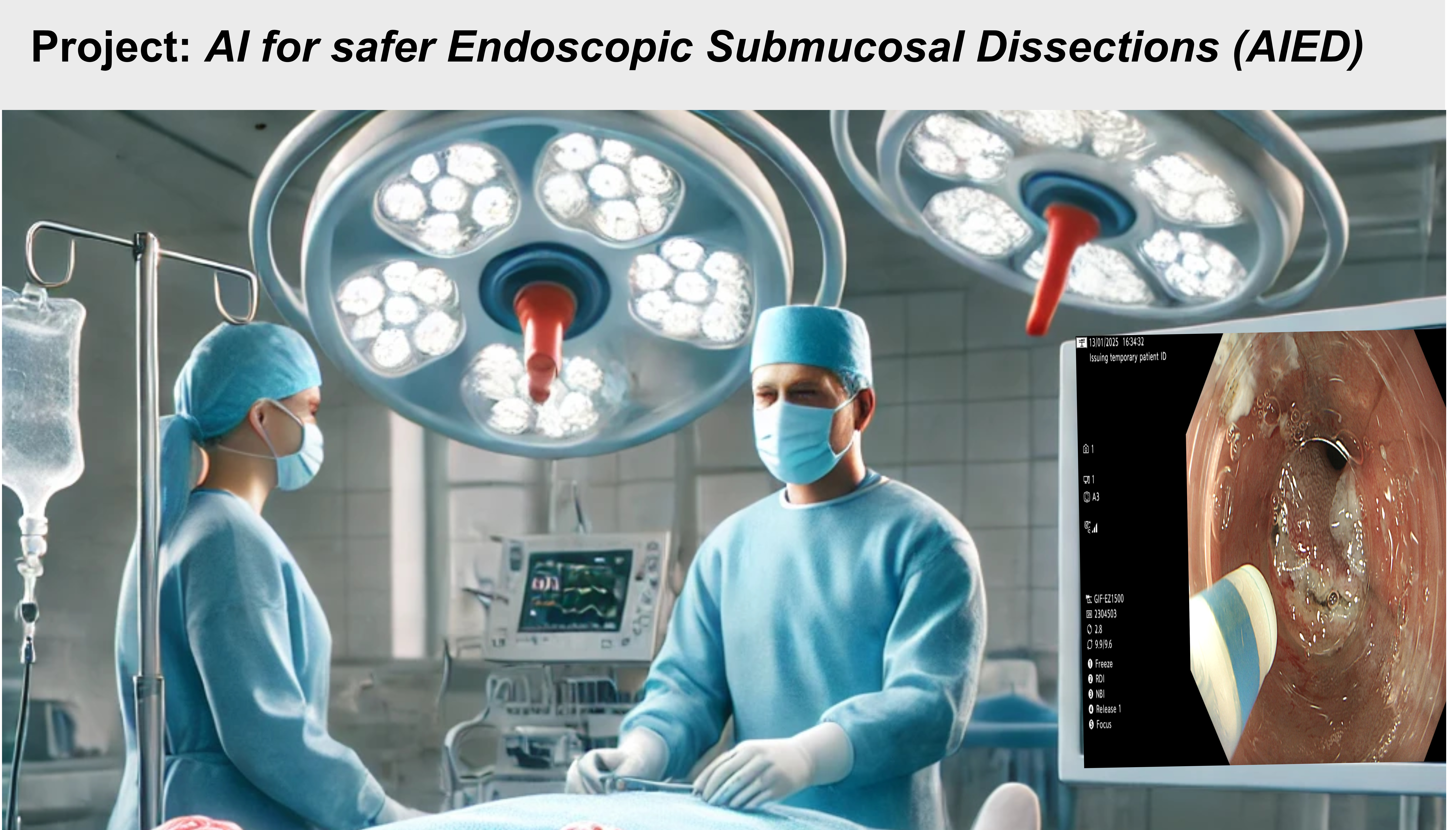
The Research Problem
Endoscopic submucosal dissection (ESD) is a widely adapted, minimally invasive procedure for treating superficial cancers. However, ESD is particularly challenging due to the thin muscular layer and narrow lumen of the oesophagus, which is surrounded by vital organs, including the lungs. In the UK, a handful of centres offer ESD, and ESD training is available at even fewer centres with systematic supervision. This can be even more challenging in low-middle-income countries and countries with higher health inequalities. Empowering clinical fellows through effective training can minimise the current gap and help scale up centres’ potential to safely and effectively treat patients with cancer at an early stage.
Research Design
ESD involves various phases, including lesion marking, submucosal injection, incision and dissection. These sub-tasks can be non-trivial for trainee clinicians and hence developing an AI system, which provides feedback for each process, including any missing phases and the amount of time taken on each phase, would make the treatment much more accessible.
As part of this project, a phase recognition AI system with interactive feedback will be developed. This will include training the system for detection and boundary identification of the lesion area through to guidance for dissection. All associated risks will be flagged as feedback for the clinician.
The project will be led by the University of Leeds, who will develop this framework and the prototype. The anonymised dataset is being provided by the project co-lead from The Chinese University of Hong Kong (CUHK), which will be used to develop and train the AI system. The developed system will be validated on 100 ESD cases provided by the Leeds Teaching Hospital NHS Trust. The feasibility of the study in scaling up ESD training at other hospitals will be achieved through our wider WUN collaborators, including the University of Exeter in the UK and Tec de Monterrey in Mexico.
Project Objectives
The key goal of this WUN funded project is to build a strong global collaboration between experts within the WUN across computational endoscopy and clinical teams, with a clear target to tackle an unmet clinical need that can positively impact cancer treatment globally. Optimising treatment at the early phase is very challenging and, if left unattended, can be life-ending. The project aims to build clinical expertise and capacity in ESD; reducing inequalities and promoting health and well-being for all.
The research team will leverage our experience and expertise in data-driven technologies in computation endoscopy, together with clinical expertise, to help support training and guidance during endoscopic submucosal dissection (ESD).